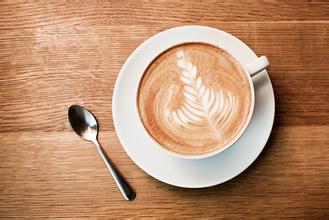Jamaican Coffee Manor with excellent Coffee growing Environment introduces Cliff Manor
Since the late 16th century, Jamaica has been repeatedly attacked by pirates from France, England, the Netherlands and other countries. In May 1655, a British fleet led by William Bing and Robert Venables occupied Jamaica. They immediately invited pirates to the island's port of Loire to help defend the Spaniards from possible counterattacks. Between 1657 and 1658, the Spaniards fought back from Cuba and ended in failure.
In 1670, according to the Madrid Treaty, Spain formally ceded Jamaica and other places to Britain, and the British immediately used the island of Jamaica as a base for their acts of piracy. Before the earthquake destroyed the port of Loire in 1692, it once became the "capital" of Caribbean pirates. Since then, the British built Kingston and gradually built it into the central city of Jamaica.
Bamboo Forest Street, Jamaica
Bamboo Forest Street, Jamaica
In the 150 years after 1692, Jamaica became a world-famous producer of sugar, rum and coffee. [4] in order to maintain a large number of plantations, the Royal Africa Company was established in England in 1672.
After 1865, after another large-scale uprising, Britain declared Jamaica a colony under direct jurisdiction in 1866. At the end of the 19th century, the sugar industry in Jamaica gradually declined and was replaced by banana farming. In 1872, Kingston officially became the capital of Jamaica.
The scenery of Jamaica
The scenery of Jamaica
In the decades after 1872, Jamaica's economy gradually prospered, but its social and cultural development was always suppressed by the colonial authorities. Especially during the Great Depression, all walks of life in Jamaica were very dissatisfied with the depressed social situation. In 1938, workers in Jamaica revolted. After that, the colonial authorities were forced to grant local autonomy. In 1944, universal suffrage was first held in Jamaica.
But by 1948, the quality of coffee had declined and Canadian buyers refused to renew their contracts, so the Jamaican government set up the Coffee Industry Committee to save the fate of top coffee. By 1969, the situation had improved because the use of Japanese loans had improved the quality of production, thus ensuring the market. Even in 1969, Japanese coffee drinkers were willing to pay insurance for the coffee, but now it has reached the point of fanaticism.
By 1981, about 1500 hectares of land in Jamaica had been reclaimed for coffee cultivation, followed by investment in another 6000 hectares of coffee land. In fact, today's Blue Mountain area is a small area with a planting area of only 6000 hectares, and not all coffee marked "Blue Mountain" can be grown there. Another 12000 hectares of land is used to grow two other types of coffee (non-Blue Mountain Coffee): Alpine Top Coffee (High Mountain Supreme) and Jamaican Coffee (Prime Washed Jamaican).
Jamaica Blue Mountain New Coffee beans
The real Blue Mountain Coffee is one of the most advantageous coffee growing conditions in the world. The weather, geological structure and topography of Jamaica provide a unique ideal place. The ridge across Jamaica extends to the eastern part of the island, with the Blue Mountains rising to more than 2100 meters. The cool weather, foggy weather and frequent rainfall reconcile the rich land of Rain Water. Here people use mixed planting to grow coffee trees next to banana and avocado trees on terraces.
Some small estates also grow Blue Mountain Coffee, such as Wallenford Estate, Silver Hill Estate and Atlanta Estate in J.Martinez. Even the largest landowners in the region are small-scale growers by international standards, many of whom are small landowners whose families have been working on the land for two centuries. The coffee industry in Jamaica faces a series of problems, such as the impact of hurricanes, the increase in labor costs and the difficulty of mechanizing terraces. It is difficult to rationalize planting on many small estates and farms.
However, Blue Mountain Coffee is one of those coffee retailers that value credibility to stock some coffee no matter what. A leading British retailer said: regardless of the price, he will continue to sell Blue Mountain coffee all year round because he has many customers who only recognize "Blue Mountain".
Now, 90% of the post-harvest Blue Mountain coffee is bought by the Japanese. In 1992, Jamaica sold 688 tons of Blue Mountain coffee to Japan, 75 tons to the United States and 59 tons to Britain. Now that the rest of the world can only get 10% of the output of Blue Mountain coffee, regardless of the price, blue mountain coffee is always in short supply. In the UK, Langford Brothers Brothers has been the only supplier for many years. Later, the Edmunds Group (Edmonds Group) also received a supply from Jamaica's Salda Food Company (Salda Foods).

Important Notice :
前街咖啡 FrontStreet Coffee has moved to new addredd:
FrontStreet Coffee Address: 315,Donghua East Road,GuangZhou
Tel:020 38364473
- Prev

Jamaican Coffee Silver Mountain Manor Coffee Flavor and Taste introduction to Fine Coffee beans
Located at the western tip of the island of Jamaica, Nicorell, which can enjoy the spectacular sunset and romance in the Caribbean, has become a must for couples and tourists. [32] GotoNegril! This famous Jamaican song is so popular that it attracts many people to the coast of Nicorell. The place has coconut leaves as the roof of the hotel and small buildings, unique style, for you to be small
- Next

Jamaican Coffee Valenford Manor Fine Coffee beans Flavor and taste characteristics of producing areas
The current constitution entered into force on August 6, 1962. The Constitution provides that the Governor appoints the Majority Leader of the House of Representatives as Prime Minister of the Government and appoints ministers on the basis of the Prime Minister's nomination. The Cabinet is composed of the Prime Minister and no less than 11 ministers and is accountable to the Parliament. The leader of the opposition is also appointed by the Governor. [12] the Parliament consists of the Senate and the House of Representatives for a term of five years. 21 senators, appointed by the Governor, of whom the Prime Minister
Related
- Does Rose Summer choose Blue, Green or Red? Detailed explanation of Rose Summer Coffee plots and Classification in Panamanian Jade Manor
- What is the difference between the origin, producing area, processing plant, cooperative and manor of coffee beans?
- How fine does the espresso powder fit? how to grind the espresso?
- Sca coffee roasting degree color card coffee roasting degree 8 roasting color values what do you mean?
- The practice of lattes: how to make lattes at home
- Introduction to Indonesian Fine Coffee beans-- Java Coffee producing area of Indonesian Arabica Coffee
- How much will the flavor of light and medium roasted rose summer be expressed? What baking level is rose summer suitable for?
- Introduction to the characteristics of washing, sun-drying or wet-planing coffee commonly used in Mantenin, Indonesia
- Price characteristics of Arabica Coffee Bean Starbucks introduction to Manning Coffee Bean Taste producing area Variety Manor
- What is the authentic Yega flavor? What are the flavor characteristics of the really excellent Yejasuffi coffee beans?

